Search
Did you mean: Bes?
Remove Ads
Advertisement
Summary 
Loading AI-generated summary based on World History Encyclopedia articles ...
Search Results
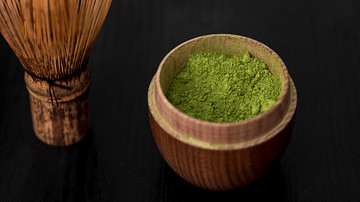
Article
The History of Japanese Green Tea
The history of green tea in Japan goes back to the 8th century when it was a popular stimulant for meditating monks. In this article, we examine tea's origins and cultivation, how it became an integral part of Japanese culture, the symbolism...

Definition
Boston Tea Party
The Boston Tea Party was an act of political protest carried out by American colonists on 16 December 1773, in Boston, Massachusetts. Disguised as Mohawk Native Americans, the colonists dumped 342 crates of tea into Boston Harbor to protest...
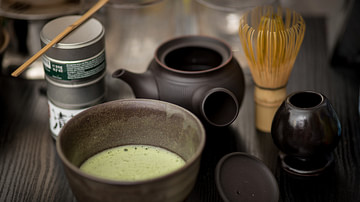
Definition
Japanese Tea Ceremony
The Japanese Tea Ceremony (chanoyu or chado) is a cultural tradition involving very particular places, procedures, and equipment for drinking green tea. Originating as a habit of Chinese Buddhist monks to aid their meditation, tea-drinking...
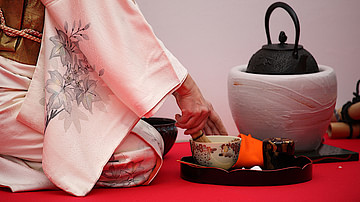
Article
Tea in Ancient China & Japan
Tea, still probably the world's most popular prepared beverage, was first drunk by Chinese monks to aid meditation and those who valued its medicinal qualities, but it quickly grew in popularity, spreading to other East Asian cultures, especially...

Video
The History of Tea and the Spread of 'Cha' and 'Tea' for International Tea Day
The History of Tea is a long journey, which begins in southwest China in the Yunnan Province during the Shang Dynasty of China between 1500 and 1046 BCE. International Tea day used to be celebrated on December 15th until 2020 when the UN...
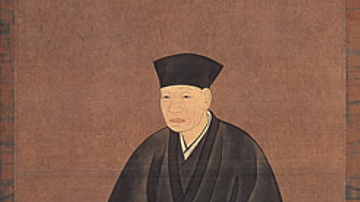
Image
Tea Master Sen no Rikyu
A portrait by Hasegawa Tôhaku of the celebrated tea master Sen no Rikyu (1522-1591 CE) who is credited with creating the established procedures for the Japanese tea ceremony.
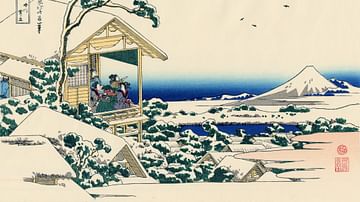
Image
Tea House at Koishikawa by Hokusai
An illustration by Hokusai: the Tea House at Koishikawa from '36 Views of Mount Fuji.' 1830 CE.
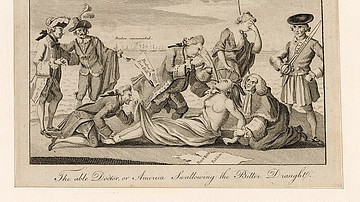
Definition
Intolerable Acts
The Intolerable Acts, also known as the Coercive Acts, were five laws passed by the Parliament of Great Britain in 1774 to punish the Thirteen Colonies of British North America for the Boston Tea Party. Though the acts primarily targeted...
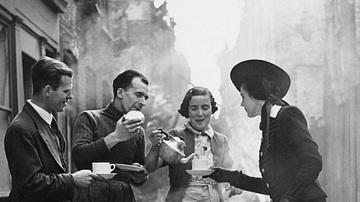
Image
Tea in the Blitz
A cafe owner sells tea in the street during the London Blitz (1940-1). (Imperial War Museums)

Video
The History of Japanese Green Tea
Did you know that, according to legend, tea came from the eyelids of a monk? Green Tea in Japan has a long history, dating back to the 8th century where it began its importance in the country as a stimulant for meditating monks. In both...